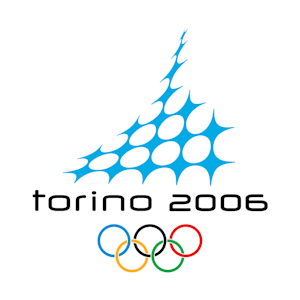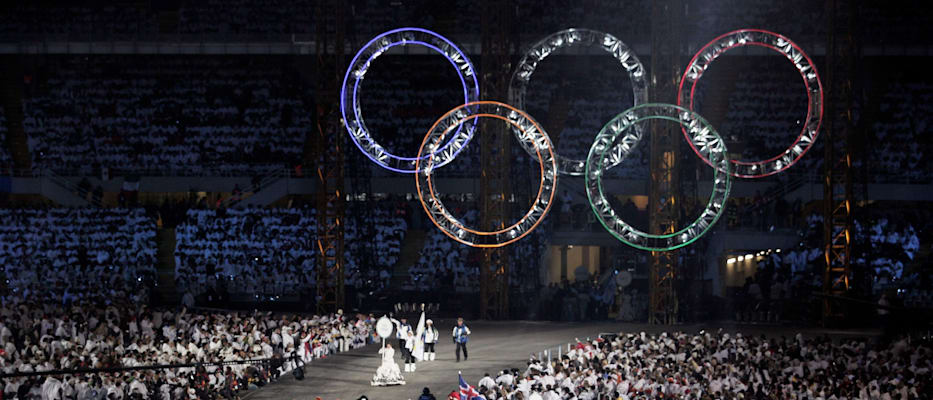With a population of more than 900,000, Turin became the largest city ever to host the Olympic Winter Games. A record 2,508 athletes from 80 National Olympic Committees (NOCs) competed, and 26 NOCs took home medals—another record.
For the first time, live video coverage of the Games was available on mobile phones. Video coverage was available in 18 countries on five continents. In another first, television viewers in Mongolia and Azerbaijan were also able to watch all the action. Surfing the internet for results proved popular too, with torino2006.org registering approximately 700 million page views, and the site of the International Olympic Committee, Olympic.org, over 32 million.
Albania, Madagascar and Ethiopia were all represented for the first time. Claudia Pechstein of Germany became the first speed skater to earn nine career medals, and with his victory in the Super G, Kjetil Andre Aamodt of Norway became the first Alpine skier to earn four medals in the same event and the first to win four gold medals in total.
Olympic Spirit
When Sara Renner of Canada broke one of her poles in the cross-country skiing team sprint, Norwegian head coach Bjørnar Håkensmoen lent her one of his (albeit 12cm too long). This act of fair play and sportsmanship allowed Renner to help her team win silver, and dropped Norway out of the medals.
NOCs: 80
Athletes: 2,508 (960 women, 1,548 men)
Events: 84
Volunteers: 18,000
Media: 9,408 (2,688 written press, 6,720 broadcasters)
Gold for Sweden
The Turin Olympic Games were particularly satisfying for Sweden, which had not won a gold medal at either of the previous two Winter Games. In 2006, Swedish athletes won seven Olympic events: men’s ice hockey, women’s curling, women’s Alpine skiing and biathlon and three in cross-country skiing.
Oldest Athlete
Duff Gibson of Calgary, Canada, switched from bobsleigh to skeleton in 1998 and qualified for the Canadian team in 2002, finishing tenth in Salt Lake City. At the Turin Games, he beat everyone, and became the oldest athlete in the history of the Winter Games to win a gold medal in an individual event. On the day he won, he was 39 years and 190 days old.
Joey Cheek
U.S. speed skater Joey Cheek won a gold medal in the 500 metres event and a silver at 1,000 metres. His gold medal earned him a $25,000 (USD) bonus from the United States Olympic Committee. Cheek donated the money to charity.
Three New Participating NOCS
Three NOCs entered the Winter Olympic Games for the first time. Erjon Tola of Albania and Mathieu Razanakolona of Madagascar represented their countries in Alpine skiing, while Robel Teklemariam competed for Ethiopia in cross-country skiing.
The Fight Against Doping
The Torino 2006 Olympic Winter Games witnessed the most stringent anti-doping controls ever. A record 1,219 tests were administered.
Sustainable Development
The United Nations Environment Programme (UNEP) has praised the Torino 2006 Games for its work on the environment. UNEP had signed a protocol with the Organising Committee for the XX Olympic Winter Games – Torino 2006.
The Tallest
The Torino 2006 cauldron is reported to be the tallest cauldron in the history of the Olympic Games. Measuring 57 metres, the cauldron has three segments of 31, 15 and 11 metres, respectively.
Jean-Pierre Vidal
Jean-Pierre Vidal missed one-and-a-half years of competition after sustaining a major injury in a fall in March 1999. He came back to win the gold medal in the slalom at the 2002 Salt Lake City Olympic Games, and hoped to defend his title in 2006. But the day before the slalom competition, Vidal went for a pleasure ski to celebrate his 29th birthday, fell, broke his left arm and had to withdraw.
Tanja Poutiainen
Prior to the 2006 Turin Olympic Games, Finland had won 71 medals in cross-country skiing, but not a single one in Alpine skiing. Tanja Poutiainen broke this winless streak when she obtained the silver medal in the last women’s event of the Games, the giant slalom.
Curling in Italy
Curling was not exactly a popular sport in Italy, which qualified for the Olympic tournament only because it was the host country. But Italians, who watched television coverage of curling by the millions, were fascinated by the sport—and particularly by their team’s 22-year-old skip, Jöel Retornaz, with his unusual hairstyle and designer glasses. Italy scored upset victories over possible medallists United States and Canada, but finished in 7th place.
Speed Skating Added a New Event
Speed skating added a new event to its programme: the team pursuit. Two teams composed of three skaters start simultaneously at each side of the track, and the team members take turns “pulling” or leading the team. The skaters who are not pulling follow closely behind the leader to take advantage of the air currents. The team whose third skater crosses the finish line first is the winner.
Snowboard Cross
The exciting sport of snowboard cross was included in the Olympic program for the first time in 2006. Competitors race against each other in groups of four on a course that includes banked turns, jumps and difficult terrain. The first gold medals were won by Seth Wescott of the United States and Tanja Frieden of Switzerland.
Ceremonies
10 February 2006, Opening Ceremony of the XXth Olympic Winter Games.
Official Opening of the Games by:
The President of the Italian Republic Carlo Azaglio Ciampi
Lighting the Olympic Flame by:
Stefania Belmondo (cross country skiing)
Olympic Oath by:
Giorgio Rocca (Alpine skiing)
Official Oath by:
Fabio Bianchetti (skating)


